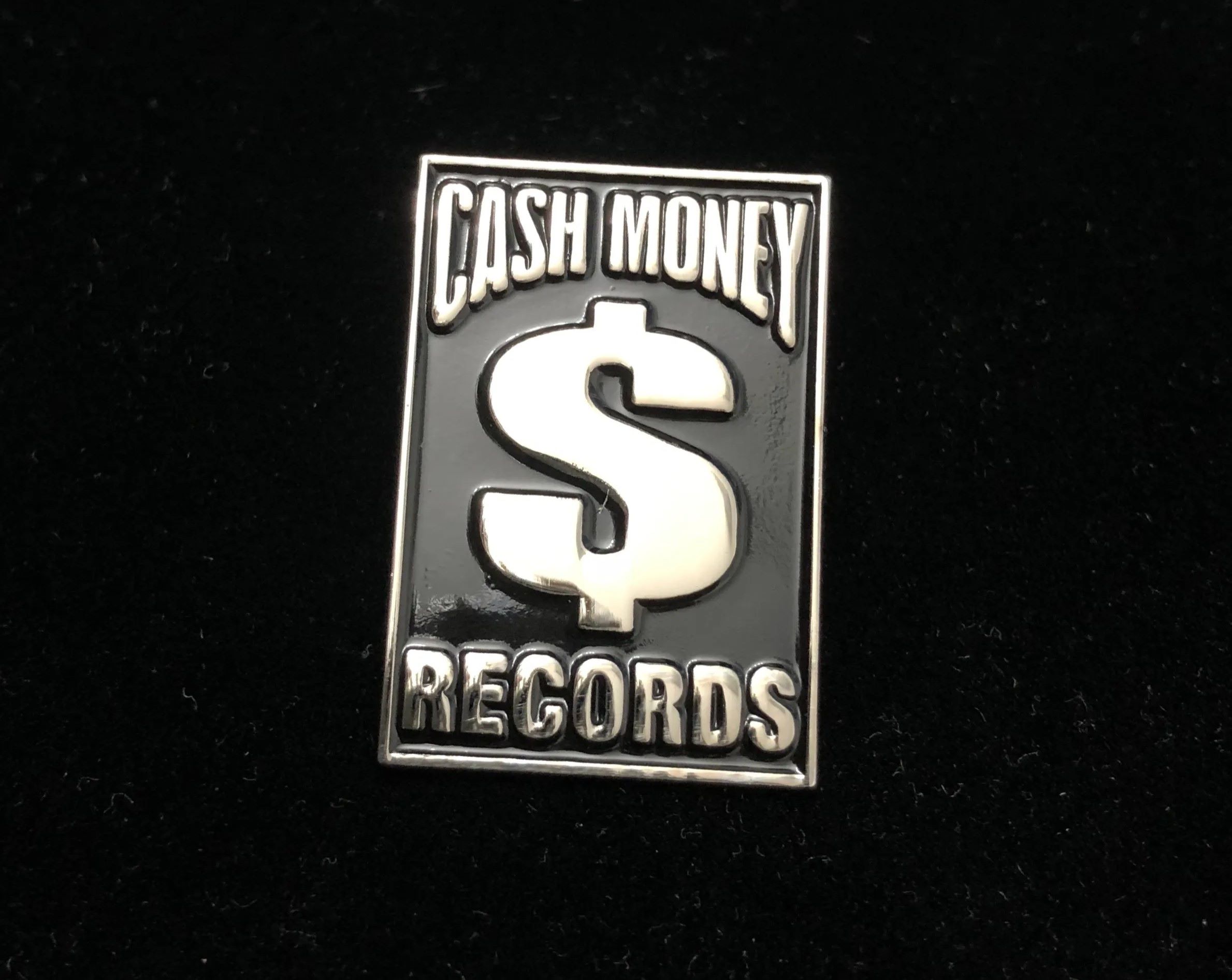Home>Production & Technology>Record Label>What Record Label Should I Go For


Record Label
What Record Label Should I Go For
Published: January 25, 2024
Looking for the perfect record label? Discover the best options for your music career with our expert guidance and find your path to success in the music industry.
(Many of the links in this article redirect to a specific reviewed product. Your purchase of these products through affiliate links helps to generate commission for AudioLover.com, at no extra cost. Learn more)
Table of Contents
Introduction
Choosing the right record label is a crucial step for any aspiring musician or band. A record label can provide the necessary support, resources, and connections to help artists take their careers to the next level. However, with so many options available, it can be overwhelming to determine which record label is the best fit for your unique style and goals.
In this article, we will explore the various factors to consider when deciding on a record label, as well as provide insights into major record labels, independent record labels, and the DIY (Do-It-Yourself) approach. By the end, you should have a better understanding of what record label will best align with your artistic vision and career aspirations.
Before diving into the different options, it’s important to highlight that each record label operates differently, with varying levels of support, control, and financial arrangements. Additionally, the music industry has undergone significant changes in recent years, with emerging platforms such as streaming services and social media offering artists alternative avenues for exposure and success.
With that in mind, it’s crucial to carefully assess your goals, strengths, and resources before making a decision. Whether you prioritize creative control, financial stability, or artistic freedom, understanding your priorities will help guide your search for the ideal record label.
Now, let’s delve into the factors you should consider when evaluating record labels and explore the options available to you.
Factors to Consider
When determining which record label to go for, several factors should be taken into consideration. These factors will help you evaluate and compare different options, ensuring you make an informed decision:
- Genre and Style: Consider whether the record label specializes in your genre or style of music. Some labels have a specific focus, such as rock, pop, hip-hop, or electronic music, while others have a more diverse roster. Finding a label that aligns with your musical style can increase the likelihood of a successful partnership.
- Reputation and Track Record: Research the reputation and track record of the record label. Look into their history, the artists they have worked with, and the success stories they have helped create. A label with a strong reputation and a track record of supporting and promoting their artists is more likely to provide valuable resources and opportunities.
- Financial Support: Consider the financial support offered by the record label. This includes factors such as the budget allocated for recording, marketing, touring, and other expenses. Evaluate whether the label can provide the necessary financial backing to help you achieve your goals.
- Distribution and Promotion: Assess the label’s distribution and promotion capabilities. Find out if they have well-established connections with streaming platforms, radio stations, and other media outlets. A label with a robust distribution and promotion network can significantly enhance the reach and visibility of your music.
- Contract Terms: Review the contract terms and conditions carefully. Pay attention to factors such as contract length, royalty rates, ownership of masters, creative control, and any additional obligations or restrictions. Seeking legal advice is highly recommended to ensure you fully understand the terms and implications of the contract.
- Artist Development: Consider whether the label has a dedicated artist development program or resources to help nurture your talent. A label that prioritizes artist development can provide valuable guidance, mentoring, and support to help you grow as an artist.
- Compatibility and Chemistry: Evaluate the compatibility and chemistry between yourself and the record label. It’s important to have a good working relationship with your label representatives and feel comfortable communicating and collaborating with them. Mutual trust and understanding contribute to a successful partnership.
By carefully considering these factors and conducting thorough research, you can narrow down your options and find a record label that aligns with your needs and aspirations. Now, let’s take a closer look at the major record labels, independent record labels, and the DIY approach to help you make an informed decision.
Major Record Labels
Major record labels, also known as the “Big Three,” are the largest and most well-established players in the music industry. They have extensive resources, global distribution networks, and a history of working with some of the biggest names in music. The major record labels include:
- Universal Music Group: As the largest record label in the world, Universal Music Group has an impressive roster of artists across various genres. Their subsidiaries include Interscope Geffen A&M, Republic Records, and Def Jam Recordings.
- Sony Music Entertainment: Sony Music Entertainment boasts a diverse catalog of artists and labels, including Columbia Records, RCA Records, Epic Records, and Sony Music Nashville. They have a strong presence in pop, rock, hip-hop, and country music.
- Warner Music Group: Warner Music Group represents a wide range of artists through its labels, such as Atlantic Records, Warner Bros. Records, and Elektra Records. They have a notable presence in the rock, pop, and urban music scenes.
Partnering with a major record label can offer significant advantages, including access to top-tier producers, marketing budgets, and established connections. However, it’s important to note that competition for signing with major labels is fierce, and they often prioritize artists with a proven track record or significant commercial potential.
While major labels have vast resources, they sometimes require artists to relinquish a certain degree of creative control and may focus on more commercially viable mainstream music. It’s crucial to carefully evaluate the fit between your artistic vision and the label’s direction before pursuing a contract.
Now, let’s discuss independent record labels, an alternative option that offers greater artistic freedom and a more personalized approach.
Independent Record Labels
Independent record labels, also known as indie labels, are smaller, artist-centric companies that operate outside of the major label system. They have gained popularity in recent years due to their ability to offer artists more creative freedom, flexibility, and personalized attention. Here are some key aspects of independent record labels:
- Artistic Freedom: Indie labels are often known for allowing artists to maintain a higher degree of artistic control over their music. They embrace diverse genres and experimental sounds, providing a platform for artists who may not fit the mainstream mold.
- Personalized Approach: Independent labels typically have smaller artist rosters, allowing for more personalized attention and closer relationships between artists and label representatives. This can lead to a more collaborative and supportive environment.
- Niche Focus: Many independent labels have a niche focus, catering to specific genres or subcultures. This allows them to develop a dedicated fan base and connect artists with like-minded listeners who appreciate unique and authentic music.
- Flexible Contracts: Indie labels often offer more flexible contract terms compared to major labels. They may provide shorter contract lengths, more favorable royalty rates, and the potential for artists to retain ownership of their masters.
- Entrepreneurial Spirit: Independent labels generally operate with a strong entrepreneurial spirit, embracing innovative marketing strategies and grassroots promotion to connect with audiences. They may have a more nimble and adaptive approach to navigate the ever-changing music landscape.
Choosing an independent record label allows artists to explore their creative vision while maintaining a closer connection to their fan base. However, it is important to thoroughly research and assess independent labels as they vary in terms of financial stability, distribution capabilities, and resources. Some indie labels have established themselves as reputable industry players, while others may have limited resources and reach.
If you are willing to take on a more hands-on role in your music career, the DIY (Do-It-Yourself) approach might be an alternative worth considering. We will explore this approach in the next section.
DIY (Do-It-Yourself) Approach
The DIY (Do-It-Yourself) approach is a self-reliant and independent way of pursuing a music career. With advancements in technology and the rise of social media platforms, many artists are embracing this DIY approach to forge their own paths in the music industry. Here are some key elements of the DIY approach:
- Creative Control: Choosing the DIY route gives artists complete creative control over their music. From songwriting and production to album artwork and stage performances, artists have the freedom to shape their artistic vision without compromise.
- Direct Fan Engagement: Artists using the DIY approach can establish a direct connection with their fans through social media, email newsletters, and live performances. This direct engagement fosters a loyal and dedicated fan base, often leading to organic growth and word-of-mouth promotion.
- Online Platforms: Utilizing online platforms such as streaming services, Bandcamp, SoundCloud, and YouTube allows artists to independently release and distribute their music to a global audience. These platforms provide opportunities for exposure and discovery, especially when coupled with effective marketing and promotion strategies.
- Collaborative Networks: DIY artists often collaborate with fellow musicians, producers, and visual artists to enhance their creative output. Building a network of like-minded individuals can create valuable opportunities for shared resources, collective promotion, and artistic growth.
- Entrepreneurial Mindset: Taking the DIY approach requires artists to embrace an entrepreneurial mindset. Artists must take on multiple roles, including marketing manager, booking agent, social media strategist, and financial planner, to effectively manage their music career.
While the DIY approach offers autonomy and creative freedom, it requires significant dedication, resourcefulness, and self-motivation. Artists must be prepared to invest time and effort into building their brand, marketing their music, and tirelessly pursuing opportunities.
It’s worth noting that the DIY approach is not mutually exclusive with working with record labels. Many artists start with the DIY approach to establish a solid foundation and gain industry experience before entering into label partnerships on their own terms.
Ultimately, the decision to go with a major record label, an independent label, or the DIY approach depends on your personal goals, artistic vision, and resources. Evaluate these options carefully, seek advice from industry professionals, and consider your long-term career trajectory. With the right approach, you can find success and fulfillment in the music industry, irrespective of the chosen path.
Conclusion
Choosing the right record label is a critical decision that can significantly impact your music career. Whether you opt for a major record label, an independent label, or take the DIY approach, understanding your goals, priorities, and resources is essential.
If you value the backing of a well-established institution, have commercial aspirations, and are comfortable with potentially sacrificing some creative control, a major record label may be the right choice for you. These labels offer extensive resources, global reach, and a proven track record of success.
On the other hand, if creative freedom, personalized attention, and a niche focus are paramount, an independent record label might be a perfect fit. Indie labels embrace diverse genres, offer more flexible contracts, and foster closer artist-label relationships.
Alternatively, you can choose the DIY approach, assuming complete control over your music career. This approach allows for maximum artistic freedom, direct fan engagement, and the opportunity to build your brand and audience through online platforms and grassroots efforts.
Remember, no decision is permanent, and artists often evolve and navigate different paths throughout their careers. Some artists may start with a DIY approach and transition to working with a record label, while others may choose to remain independent or even start their own label.
Take the time to evaluate your options, conduct thorough research, seek advice from industry professionals, and consider your long-term goals and aspirations. Whether you choose a major label, an indie label, or the DIY approach, an informed decision will set you on the right path towards a fulfilling and successful music career.











